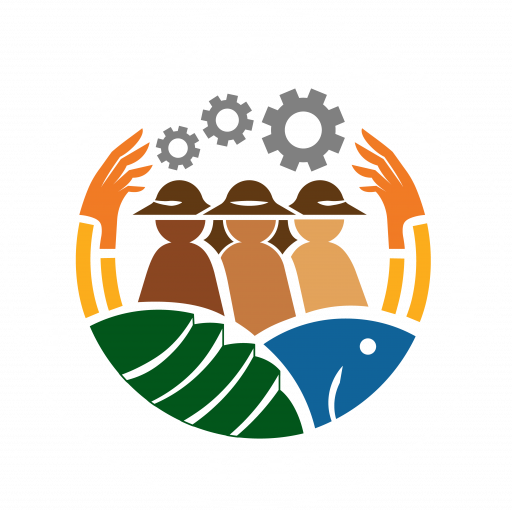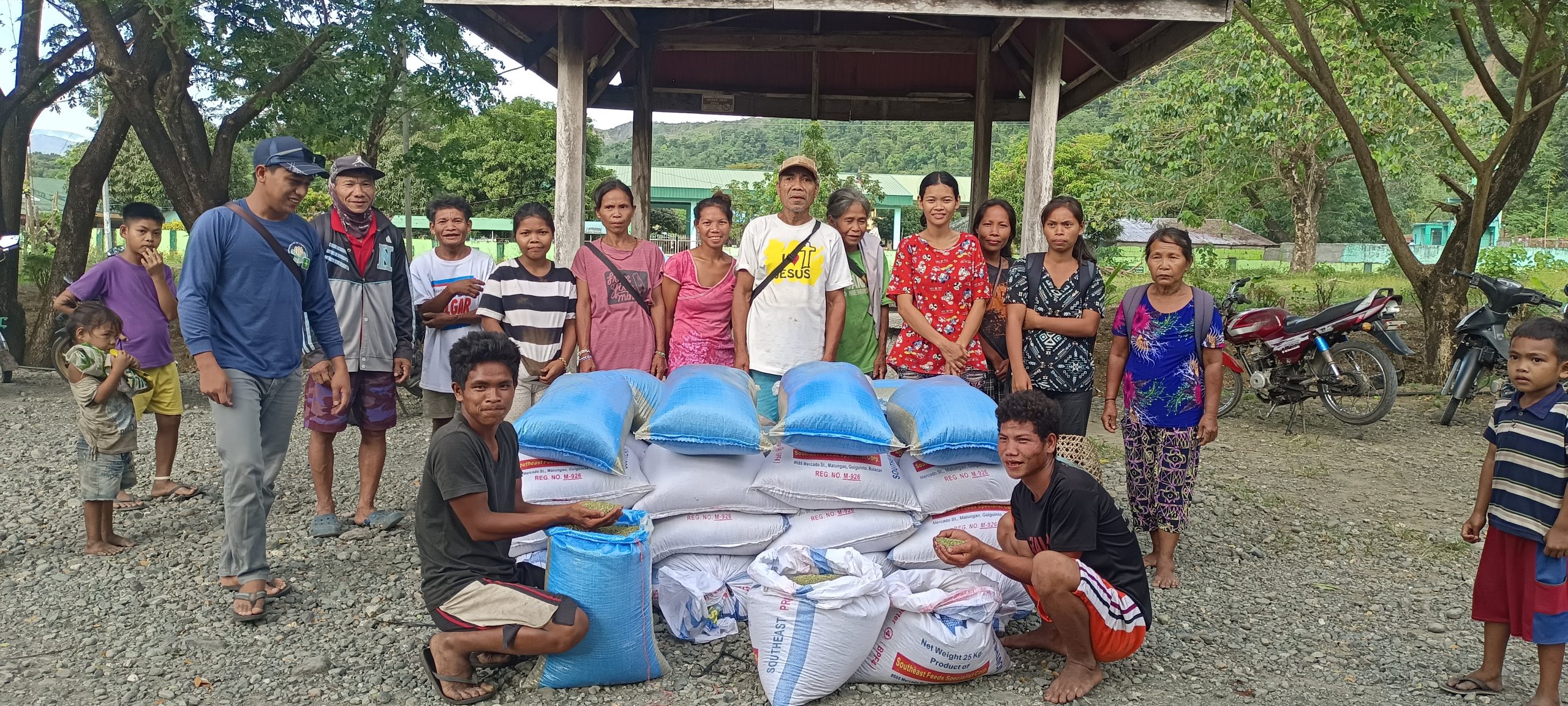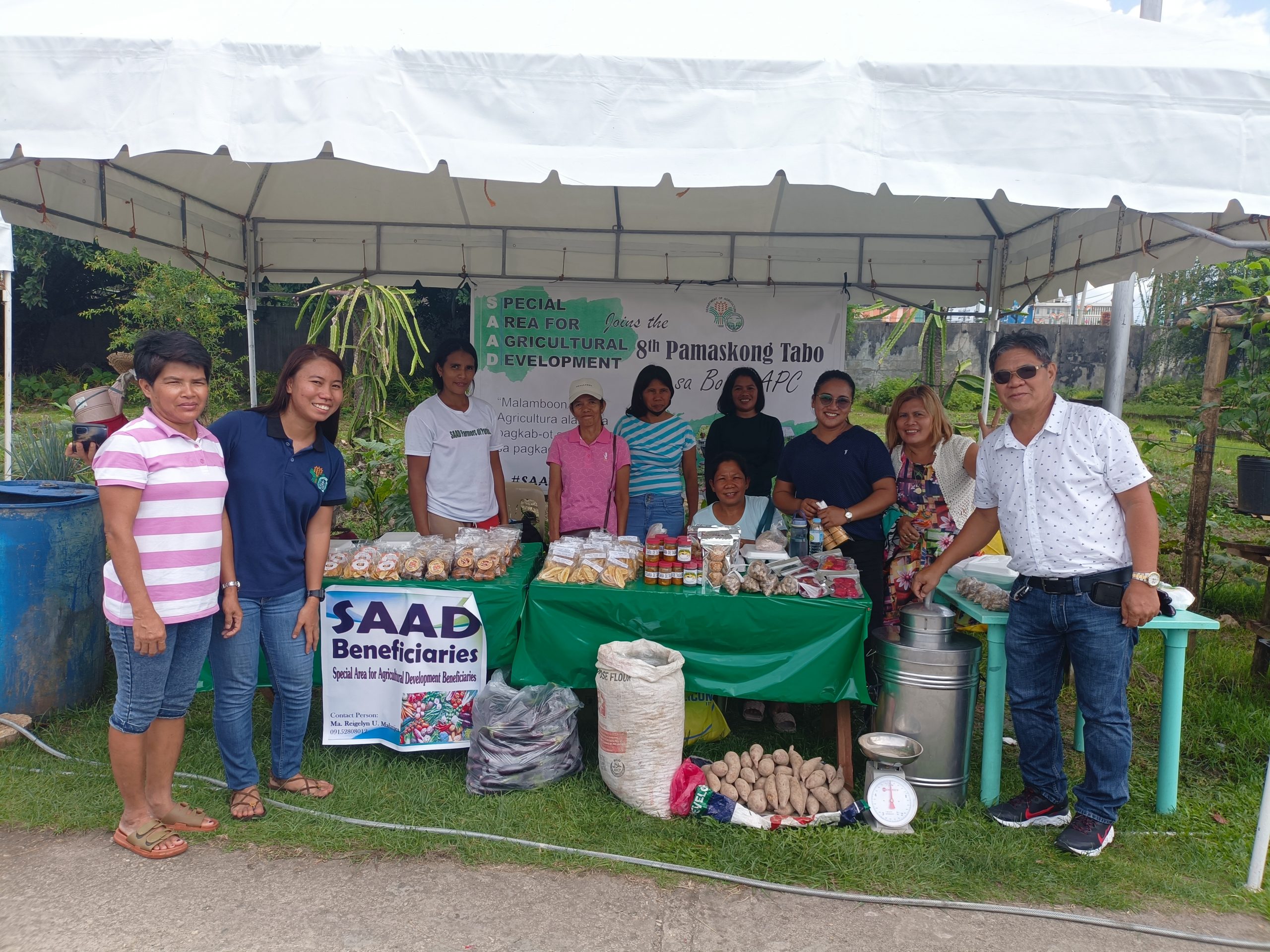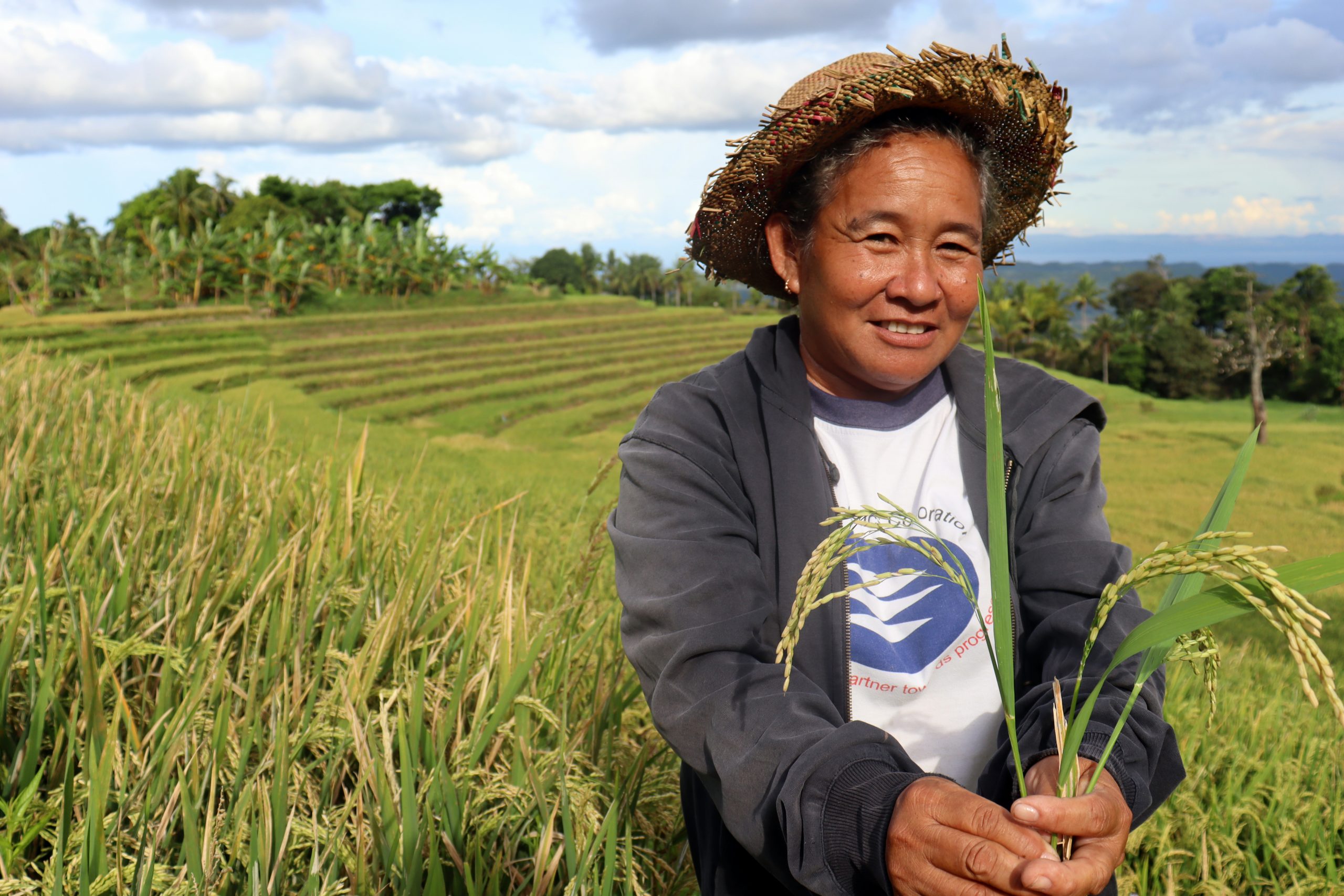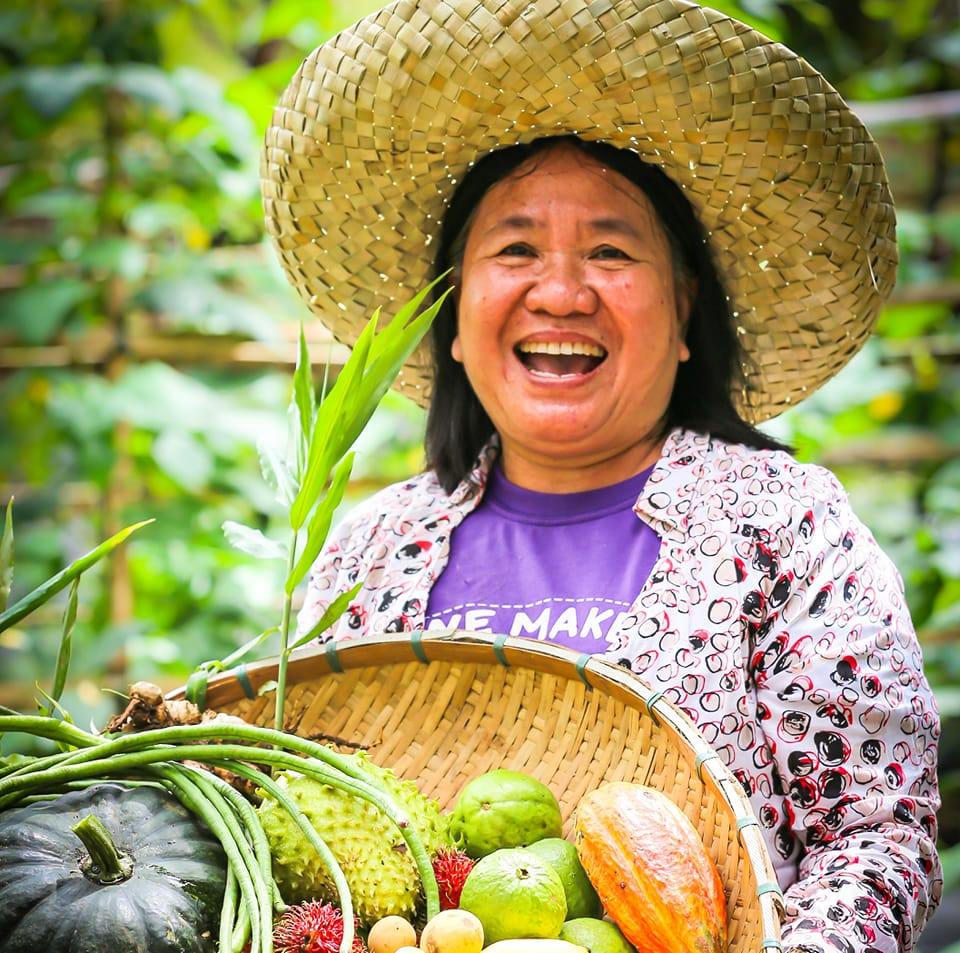Background
Biri is a coastal municipality in the province of Northern Samar with a population of 11,274 individuals according to the latest data from the Philippine Statistics Authority (PSA) in 2020. Despite being an island town, farming is considered the second most important source of income in Biri, right after fishing. For locals, notably the fishermen, bad weather makes farming a more dependable source of income.

The local government unit (LGU) of Biri thru the Municipal Agriculture’s Office (MAO) extended help to farmers and fishers alike to access agricultural implements that would boost livelihood income. In addition, MAO assists interested farmers to form associations and get organized by conducting meetings, creating policies, and processing paperwork required for accreditation.
The 21-member Progresso Farmers Association (PFA) from Biri, Northern Samar is one of the farmers’ associations (FA) that received assistance from the DA- SAAD Program through the MAO’s recommendation in 2020.
Prior to the Program’s intervention, PFA members’ main source of livelihood is rice, coconut farming, and vegetable gardening.
SAAD conducted a series of validation which includes a meeting with the endorsed FA, an ocular visit to the proposed site, and community needs assessment carried out in 2020 with the assistance of the LGU. PFA then was selected as one of the beneficiaries of the FY 2021 Native Chicken and Calamansi and Marketing Project worth Php 691,800 (Table 1).
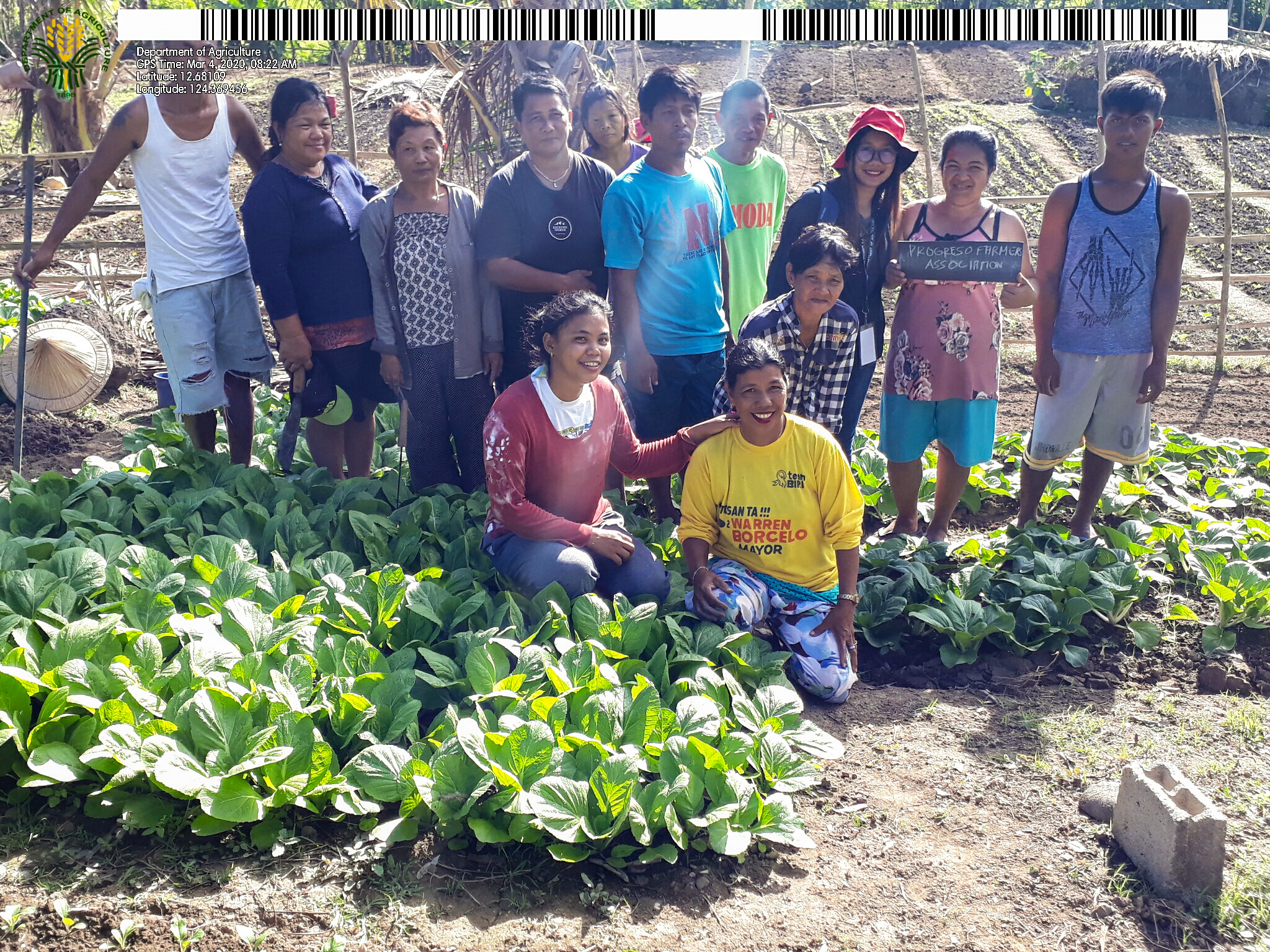
The association underwent capability building training facilitated by SAAD Northern Samar on May 24 to 26, 2021 as part of the group’s social preparation. On the other hand, the technical training on the production of native chicken and calamansi where the Provincial Agriculture’s Office and Provincial Veterinary Office served as resource speakers was only conducted on August 24 to 26, 2022 due to prolonged Covid-19 restrictions on the island.
Table 1. Inputs received by Progresso Farmers Association

In the first few months of managing the project in the group’s 4.42 hectare (ha) land, PFA encountered problems which caused high mortality among the delivered calamansi seedlings. The 6-hour hauling of seedlings from the source in Tacloban, Leyte to the drop-off location in Lavezares port in Northern Samar for acclimatization caused plant stress, which contributed to the significant mortality reported at 710 pieces of the seedlings.
To ensure that the project will still succeed, the LGU donated organic fertilizers to the association in order to improve the soil’s physical, chemical, and biological qualities, which are necessary for the seedlings’ optimum growth and development.
PFA concentrated on the remaining seedlings and does marcotting or air layering of calamansi, a method of propagation to allow trees to take a shorter time to fruit in the hopes of generating enough seedlings to replace the mortalities.
Due to the number of years it takes for calamansi to mature, only 2 to 3 among the 20 trees are already bearing fruits. The farmers nevertheless remove the fruits even if these are not yet fully developed in order to recover and grow more branches.
Native Chicken Egg Production
On the other hand, the native chickens had begun laying eggs and the association started incubating eggs through natural incubation.
Despite the difficulties and setbacks the association experienced, they managed to recover and are now earning extra from the eggs sales aside from continuing their rice, coconut farming, and backyard gardening activities.
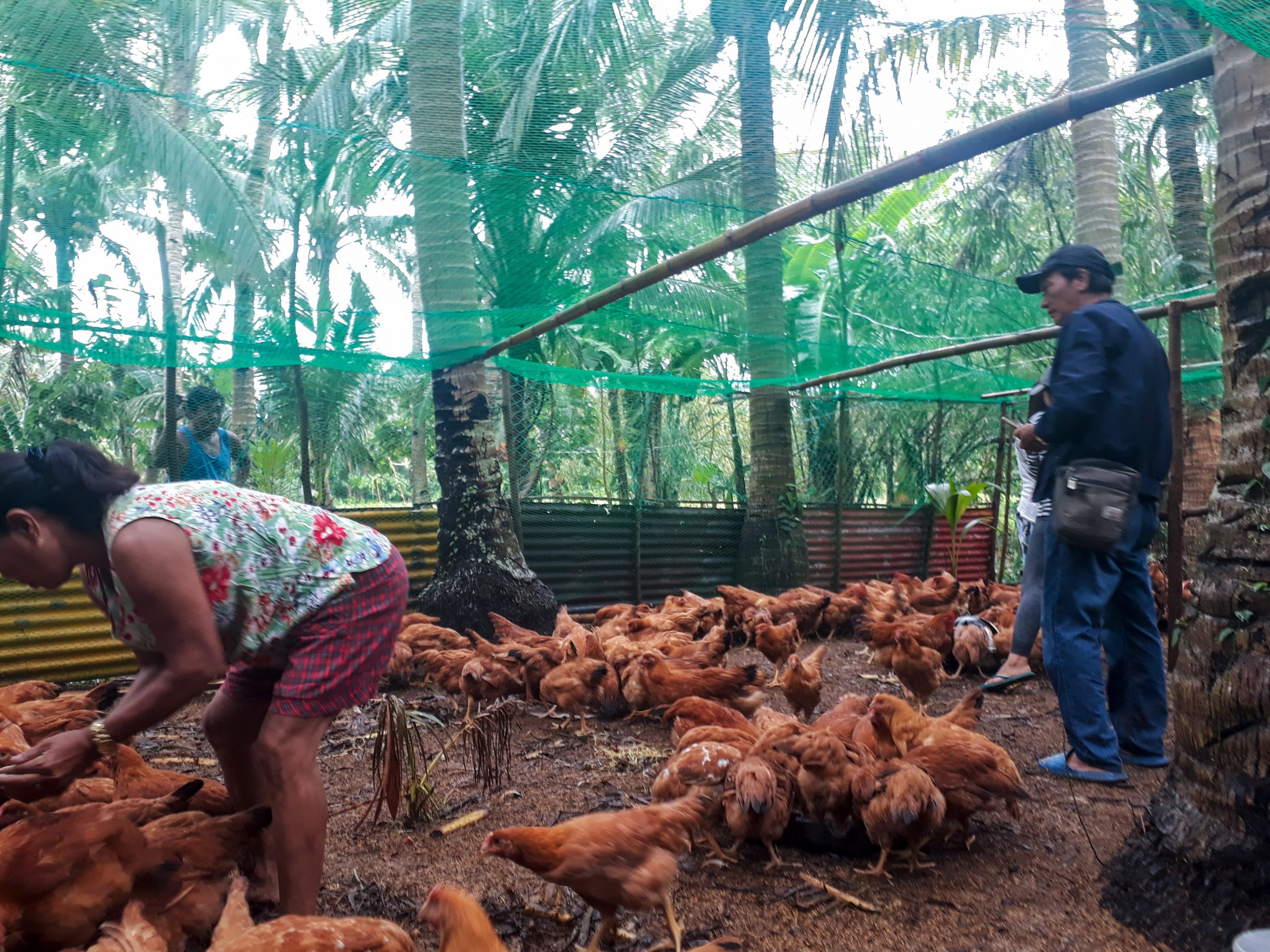
Table 2. Progresso Farmers Association’s Egg Production

“Gin SA-SAAD gihapon namon mga Ma’am ngan Sir nga an Progresso Farmers Association magigin progresibo” (We promise that the Progresso Farmers Association will thrive one day), stated Ms. Nida E. Bernaldez, board of director of PFA.
In the long run, MFA’s ultimate plan is to open a small restaurant where they will serve a native tinolang manok to tourists since the Native Chicken and Calamansi project is located near Bil-at and Magasang rock formations, a tourist spot in the island of Biri.
Additionally, the association intends to buy and raise broiler chicken once they have enough funds for the venture. The Biri LGU also promised to provide pigs to the FA for fattening to generate more income. ###
Writer: Perlis C. Ramos, DA-S AAD Northern Samar Area Coordinator II
